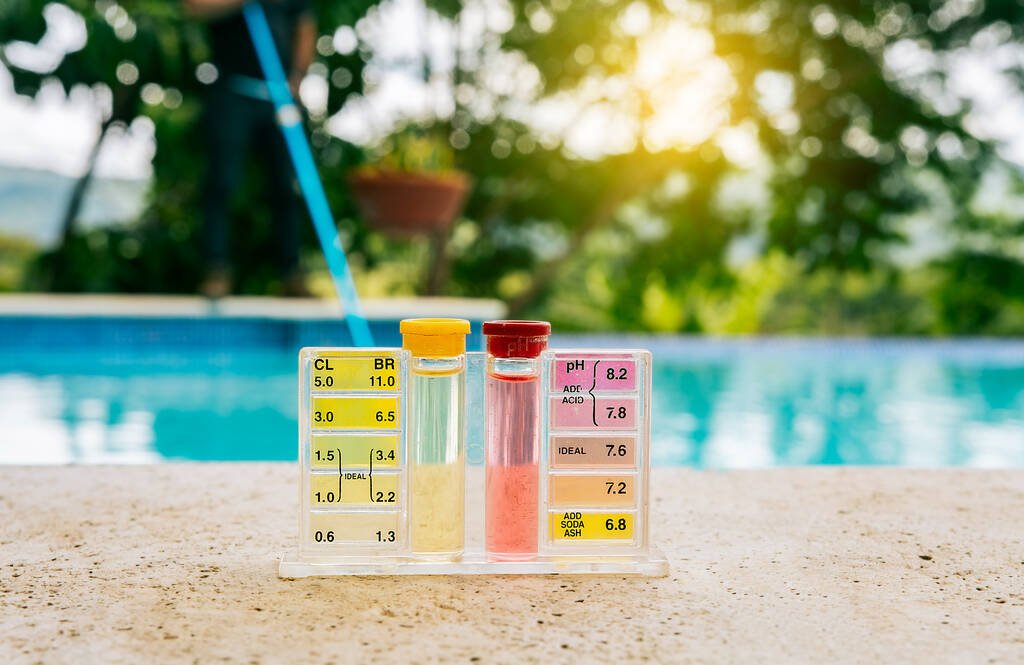Swimming Pool Maintenance 101: Keeping Your Pool Crystal Clear Throughout the Year
Australians love their swimming pools, and who can blame them? With the country's warm and sunny climate, having a pool in your backyard is a true luxury. However, owning a pool also comes with the responsibility of proper maintenance to ensure it stays crystal clear and inviting year-round. In this guide, we'll dive into the essential steps of swimming pool maintenance to help you keep your oasis in top shape.
Why Pool Maintenance Matters
Maintaining a swimming pool isn't just about aesthetics; it's crucial for the health and safety of those who use it. Neglecting proper maintenance can lead to a range of problems, including algae growth, waterborne illnesses, and costly repairs. Regular maintenance not only keeps your pool water clean and safe but also extends the life of your pool equipment.
Daily Maintenance
1. Skimming and Cleaning
Frequency: Daily
One of the simplest yet most effective ways to maintain your pool is by skimming it daily. Use a pool skimmer or net to remove leaves, insects, and debris from the water's surface. Also, check and empty the skimmer basket regularly to prevent clogs and keep the water circulation efficient.
2. Brushing
Frequency: Weekly
Brushing your pool's walls and floors helps prevent the buildup of algae and debris. Use a pool brush to scrub these surfaces, paying special attention to areas that may not receive adequate circulation, such as corners and steps. Brushing should be done weekly to keep your pool surfaces sparkling clean.
Weekly Maintenance
3. Testing Water Chemistry
Frequency: Weekly
Maintaining the right water chemistry is essential for safe and comfortable swimming. Use a water testing kit to check the pH, chlorine, and alkalinity levels, and keep records of these readings. Aim for a pH level between 7.2 and 7.6 and a chlorine level of 1-3 ppm (parts per million). Adjust these levels as needed by adding pool chemicals like chlorine or pH increaser/decreaser.
4. Shocking the Pool
Frequency: Weekly or as needed
Shocking your pool involves adding a concentrated dose of chlorine to kill bacteria, algae, and other contaminants. This should be done weekly or whenever your water test indicates a drop in chlorine levels. Follow the manufacturer's instructions on the chlorine shock product you use, and be sure to do this in the evening to prevent sunlight from degrading the chlorine.
Monthly Maintenance
5. Cleaning the Filter
Frequency: Monthly
Your pool filter plays a crucial role in removing impurities from the water. To ensure it operates efficiently, clean or backwash it monthly, or when the pressure gauge indicates a 10-15 psi increase over the normal reading. A clean filter keeps the water circulation running smoothly.
Seasonal Maintenance
6. Winterizing (for non-heated pools)
Frequency: Annually (before winter)
If you have a non-heated pool and plan to close it for the winter, you'll need to winterize it properly. This involves lowering the water level, cleaning the pool, and adding winter chemicals to prevent algae growth and equipment damage during the colder months. Consult your local pool professional for guidance on the best practices for winterizing your pool in your specific climate.
7. Opening the Pool (for heated pools)
Frequency: Annually (spring)
When the warmer weather returns, it's time to open your pool for the season. Remove the cover, clean and balance the water chemistry, and inspect the equipment for any issues. You may need to shock the pool and run the filter continuously for a few days to get the water crystal clear again.
Additional Tips for Pool Maintenance
Regular Inspections
Keep an eye out for any signs of damage or leaks in your pool equipment. Address any issues promptly to prevent costly repairs down the line.
Safety First
Make sure your pool area is safe by installing a fence or barrier, and always supervise children around the pool.
Proper Storage
Store pool chemicals in a cool, dry place away from direct sunlight and out of reach of children and pets.
Professional Help
If you're unsure about any aspect of pool maintenance, don't hesitate to consult a professional swimming pool contractor. They can offer expert advice and take care of more complex tasks.
In conclusion, maintaining a crystal-clear pool throughout the year requires dedication, but the rewards of having a clean and inviting swimming pool in your backyard are well worth it. Proper pool care is not just about physical upkeep; it can also impact your personal finance by avoiding costly repairs in the long run. By following these maintenance tips, you can ensure that your pool remains a source of joy, relaxation, and entertainment for your family and friends. Enjoy your pool, and happy swimming!
Ready to make your pool & poperty maintenance hassle-free and enjoy crystal-clear waters year-round? Contact us today and let us take care of your pool needs. Don't wait – take the plunge and reach out to us now for a sparkling pool experience like no other!


